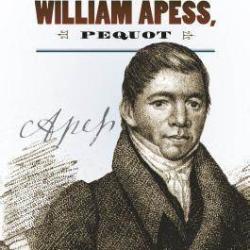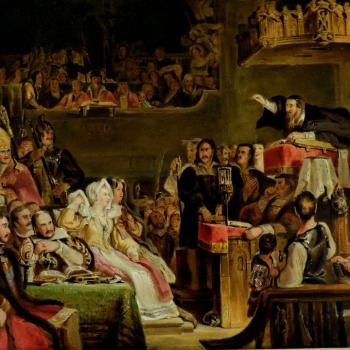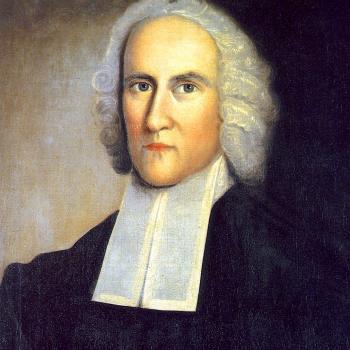The scholarly study of the Puritans has been marked in recent years by attempts to understand them in a fully transatlantic context. This follows a broader trend in early American history to focus on “Atlantic world” perspectives, rather than proto-national American ones. While others could view this de-emphasizing of the future United States as ideologically dubious, I think it is a sanguine development for understanding the Puritans in their own places and time.
I have recently written reviews of two books that illustrate the transatlantic study of Puritanism, Michael Winship’s Godly Republicanism, and Francis Bremer’s biography of New Haven founder John Davenport. At the New England Quarterly [subscription only], I wrote of Winship that
“Whig history” has long since fallen into disfavor among historians, and few academics today would be willing to laud the New England meetinghouse as a laboratory for American democracy. But, as Michael Winship argues in this deeply researched book, “historiographical excesses” should not be held against the puritans. They had strong ideas about church polity, and the settlers of New England did envision their congregations functioning as “little republics.” That belief also shaped their view of the political order.
The English puritans’ polity was republican in that congregations would elect elders to govern the church. This model stood in stark contrast to the bishop-dominated hierarchy of the Church of England, which remained too “popish” for the puritans’ taste. Winship notes that the puritans’ assumptions of “the dread of the corrupting effects of power, the fear of one-man rule, the emphasis on the consent of the people and on balanced government” were nearly identical to the hallmarks of classical republicanism…
The English Civil War—and the short-lived English republic of the 1650s—represented the greatest moment of potential for the influence of Massachusetts congregationalism and godly republicanism. But with the death of Cromwell the republic foundered, and with the Restoration both godly republicanism and congregationalism fell on hard times. Yet Winship believes that the Reformed penchant for republicanism in church and state lingered in New England and bore fruit in new varieties during the American Revolution.
Godly Republicanism is a bold, searching, and overdue analysis of the nexus between churchly and political government in puritan thought. With this book, Winship has further secured his reputation as one of this generation’s finest scholars of puritanism.

And in my review of Bremer’s Building a New Jerusalem, at Books & Culture, I reminded readers that
The future United States was not on the Puritans’ minds when they founded New England. Yet (with Ronald Reagan’s help) we still seem to think that John Winthrop—and perhaps even Jesus—meant the American nation when he spoke of a “city on a hill.”
One of the best antidotes for this American national myopia is realizing just how English the early Puritans were. I can think of no better book for this purpose than Francis Bremer’s Building a New Jerusalem: John Davenport, a Puritan in Three Worlds. Bremer, one the leading scholarly experts on the Puritans, uses the influential but understudied Davenport, the founder of the equally understudied New Haven Colony, to shift our view of the Puritans by de-centering America generally, and Massachusetts specifically.
Richard Gamble’s In Search of the City on a Hill also reveals the problems of seeing Puritanism through a more exclusively American lens, as he shows the ways that Americans (including most famously Ronald Reagan) have appropriated that “city on a hill” metaphor. I reviewed Gamble’s book here, for The Gospel Coalition.
Gamble is very accessible, and while Bremer and Winship may be a bit difficult for non-specialists, they show serious respect for the theological (and secondarily, political) beliefs that inspired the English Puritans, leading a minority of them to leave England and come to the New World.
For further reading: In an earlier Patheos post I offered my list of the best 5 books on the Puritans. I have also examined what it means if the Puritans no longer seem very “democratic,” or American, and in this post, I asked whether, following Winship, we might regard the Puritans as the “Original Republicans.”
@ThomasSKidd on Twitter












